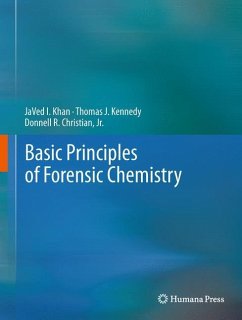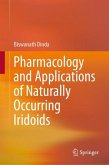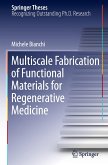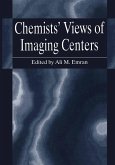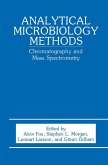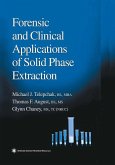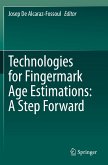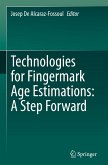Basic Principles of Forensic Chemistry is designed to provide a clear and concise understanding of forensic chemistry. The text begins with an introduction to the basic principles of chemistry and expands through organic chemistry into forensic investigation. The detailed chapters focus on both the theoretical and practical aspects of forensic chemistry with emphasis on controlled substance testing and identification. Leading experts in the field contribute general examination techniques followed by applications to more specific models. In addition, the text contains a comprehensive collection of information and data on controlled substances commonly encountered in forensic investigation including; detailed structural analysis, physical and physiological effects, functional group reactivity, and results of analytical examination. Also illustrated is arguably the greatest challenge to the forensic chemist: the investigation and processing of clandestine laboratory operations. The Forensic Chemistry Laboratory Manual is included on a CD-ROM and contains a collection of practical exercises designed to support theoretical principles covered in the text. This provides the student with valuable hands-on experience while adding clarity and continuity to the topics of discussion.
Essential and comprehensive, Basic Principles of Forensic Chemistry provides the fundamental knowledge required for a rewarding journey into the field of forensic chemistry.
Essential and comprehensive, Basic Principles of Forensic Chemistry provides the fundamental knowledge required for a rewarding journey into the field of forensic chemistry.
From the reviews:
"This is a textbook of basic principles of forensic chemistry. ... It is intended for students of forensic chemistry, specifically undergraduates majoring in criminalistics intent on a future career as a forensic examiner. This book also would be of interest to anyone with a science background ... curious about today's practice and underlying theory regarding forensic chemistry." (Valerie L. Ng, Doody's Book Reviews, March, 2012)
"The book focuses on literature data and on applications in the field of drug identification. ... This book will be of interest to beginners and experienced scientists. This book can be recommended to laboratories in departments of criminal investigation, forensic and clinical toxicology, and doping control. The book 'Basic Principles of Forensic Chemistry' focuses on the characterization of seized material, covering all the aspects, from collection of evidence to interpretation. It is a helpful resource for all scientists involved in drug identification." (Pascal Kintz, Analytical and Bioanalytical Chemistry, Vol. 403, 2012)
"This is a textbook of basic principles of forensic chemistry. ... It is intended for students of forensic chemistry, specifically undergraduates majoring in criminalistics intent on a future career as a forensic examiner. This book also would be of interest to anyone with a science background ... curious about today's practice and underlying theory regarding forensic chemistry." (Valerie L. Ng, Doody's Book Reviews, March, 2012)
"The book focuses on literature data and on applications in the field of drug identification. ... This book will be of interest to beginners and experienced scientists. This book can be recommended to laboratories in departments of criminal investigation, forensic and clinical toxicology, and doping control. The book 'Basic Principles of Forensic Chemistry' focuses on the characterization of seized material, covering all the aspects, from collection of evidence to interpretation. It is a helpful resource for all scientists involved in drug identification." (Pascal Kintz, Analytical and Bioanalytical Chemistry, Vol. 403, 2012)

